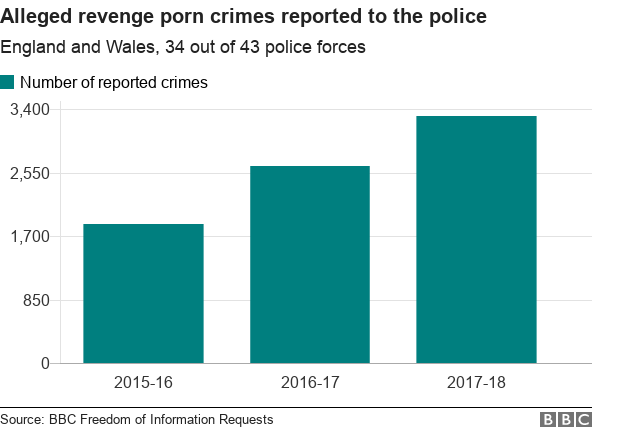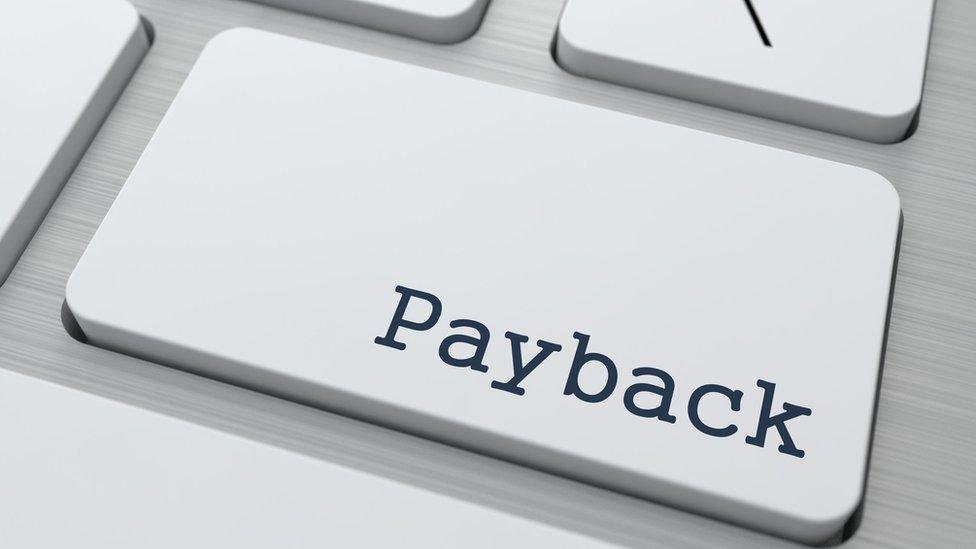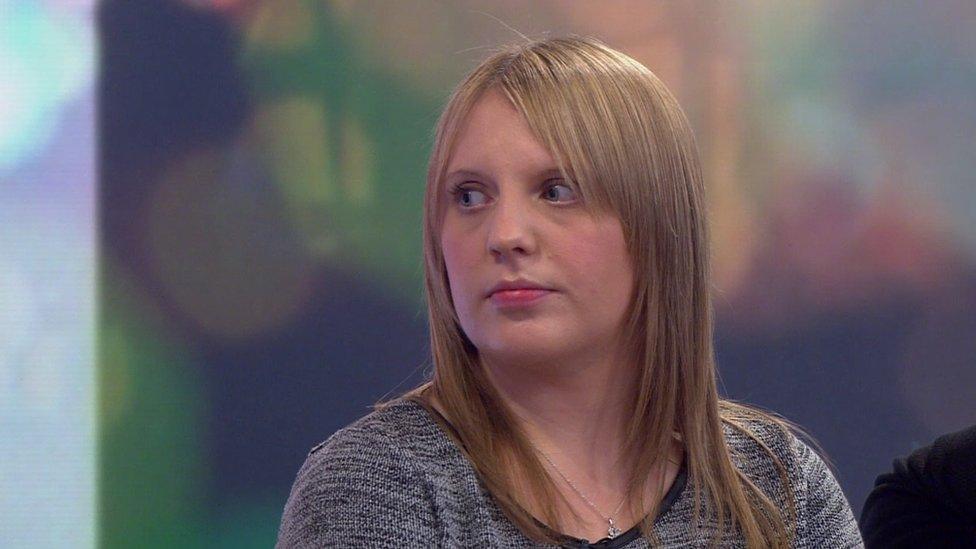Revenge porn: One in three allegations dropped
- Published
Revenge porn victim: 'I felt like I had been raped'
One in three allegations of so-called revenge porn are withdrawn by the complainant, new figures show.
Since it was made a criminal offence in 2015 victims have chosen not to support charges in 2,813 of 7,806 incidents.
Some alleged victims say it is because they are not granted anonymity, while others cite a lack of police support.
The Ministry of Justice said it was committed to supporting victims but had no current plan to change the law around identification.
The North Yorkshire Police and Crime Commissioner, Julia Mulligan, has launched a petition to change the law, external to grant victims anonymity, as is the case for complainants in sexual offence cases.
To date it has received more than 15,000 signatures.
She said: "We think the law is fundamentally flawed. At the moment [revenge porn] is a communications offence not a sexual offence and that means victims face the likelihood of being publically named and we think that puts people off."
The BBC obtained figures relating to revenge porn complaints from 34 of the 43 police forces in England and Wales.
Revenge porn is described as "the sharing of private, sexual materials, either photos or videos, of another person without their consent and with the purpose of causing embarrassment or distress".
The offence covers photos or videos showing people engaged in sexual activity which would not usually take place in public.
It includes sharing the material as well as posting it online.
In England and Wales, the maximum punishment is two years in prison - in Scotland, it is five years.

'I thought it was just us having fun'

Lydia (whose name has been changed), from West Yorkshire, was with her partner for a year before they split up and he took it badly.
"I didn't know he was taking pictures. I was blindfolded and I didn't know he was taking videos of me. I thought it was just us having fun.
"After I split up with him I got this email from a woman I didn't know saying there were explicit photos of me on a website.
"I looked on the site and typed in my name and saw my pictures - I couldn't believe it - I freaked out, had a complete meltdown.
"I'm a really private person - it was so upsetting. I called the police and I tried to contact different websites to get them to remove my pictures and video.
"He got sentenced to six months in prison. It didn't feel long enough for what he put me through.
"I feel like I was molested - like I was raped."

Lauren Evans, from Hertfordshire, contacted Thames Valley Police in 2015 after she discovered sexual images of her were being shared via social media by a man she had met online.
She said, however, she was made to feel that she was responsible for what had happened.
"I felt like it was all my fault," she said.
"Even the police officer I told my story to said 'I guess you've learnt your lesson now then', and that shook me to my core.
"I thought if the police think it's my fault then what is the point in going on."
'Victim blaming'
She also said the term "revenge porn" should be changed as it "makes it sound like the victim is deserving of this".
A spokesperson for Thames Valley Police said it could not comment on individual cases but that takes allegations of revenge porn "extremely seriously".
Catherine Knibbs is a cyber trauma researcher and psychotherapist and said some people will never get over the trauma of being a victim of revenge porn.
"Prosecutions are long, lengthy distressing process for most victims of any kind of crimes," she said.
"In terms of sexual crimes - you're looking at the proposition you might be told it's your fault, you asked for it - lot of victim blaming, very difficult for victims to come to terms with."
Data collated by the BBC shows there has been an increase in the number of revenge porn cases reported to police since records began, from 1,861 offences in 2015-16 to 3,307 in 2017-18.
The proportion of cases resulting in charges, however, has fallen. In 2015-16 it stood at 14% and in 2017-18 was just 7%.

Vanessa Smith, Det Ch Insp of the West Yorkshire Cyber Crime Unit, said: "Revenge porn itself is extortion, blackmail, it can be sexual harassment or stalking. I would urge people to be trustful of the police - we will treat your call with sensitivity.
"We need to know basics - how it's been posted, to which sites - and then we can work with those sites and organisations. I know Facebook and Twitter have provided more guidance to their customers and have been quite robust monitoring it."
A Ministry of Justice spokesperson said: "Revenge porn is an awful abuse of trust which leaves victims feeling humiliated and degraded.
"By making it a specific offence we sent a clear message that it will not be tolerated, and there have now been almost 300 convictions.
"We are committed to supporting and protecting victims. We have no current plans to extend automatic anonymity to victims of the offence, but we keep the law under constant review."
- Published6 March 2018

- Published15 December 2015
